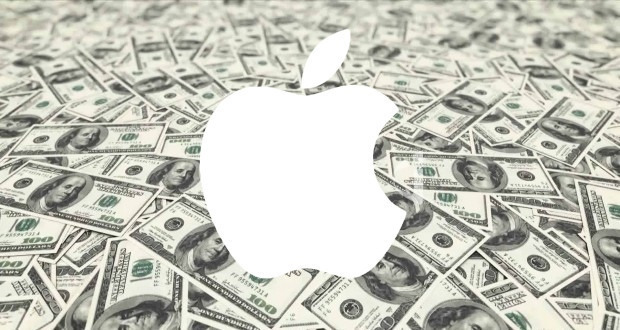The coalition of countries known as the G20 will be working to make tech companies like Apple and Google pay a fairer amount of tax, after agreeing there is a need to implement new tax rules to prevent major organizations from working around existing laws to pay as little tax as possible.
Agreed in principle on Sunday, the finance ministers of G20 countries agreed to create a list of common rules to eliminate tax loopholes currently abused by tech companies to reduce their corporate taxes. At the summit at Fukuoka, Japan, the agreement consists of "two pillars" that could change how taxes are calculated for the targeted firms.
The first pillar, Reuters reports, is to divide the rights to tax a firm based on where its goods and services are sold in the world, regardless of where its headquarters are based, or even if the company doesn't have any presence in the country at all.
The second measure, if the first is worked around by the firm somehow, addresses the use of so-called tax havens, by the application of a global minimum tax rate. No actual figures have been determined for each at this time.
"We welcome the recent progress on addressing the tax challenges arising from digitization and endorse the ambitious program that consists of a two-pillar approach," a communique from the G20 stated. "We will redouble our efforts for a consensus-based solution with a final report by 2020."
Japanese Finance Minister Taro Aso, who also acted as chair for the meetings, advised "I feel we need both pillars at the same time for this to work. The proposals are still a little vague, but they are gradually taking shape."
While there is a consensus on the agreement, there is still some unrest between the United States, the United Kingdom, and France, with the former's government concerned that US-based firms will be unfairly targeted in the tax code updates. "The U.S. Has significant concerns with the two corporate taxes proposed by France and the UK," said U.S. Treasury Secretary Steven Mnuchin on Saturday.
A number of key EU countries recently blocked a draft proposal of tax reform that would have affected firms operating within the European Union, but that hasn't stopped individual countries from seeking their own changes.
Apple is largely expected to be a major target for the tax reform, as evidenced by an EU investigation that ruled it didn't pay enough tax to Ireland, prompting a payment of $15 billion to the country. Both the Irish government and Apple are contesting the ruling by the European Commission.
Apple CEO Tim Cook has maintained Apple pays "all the taxes we owe," and that it even follows "the spirit of the laws."
 Malcolm Owen
Malcolm Owen







-m.jpg)






 Marko Zivkovic
Marko Zivkovic
 Christine McKee
Christine McKee
 Andrew Orr
Andrew Orr
 Andrew O'Hara
Andrew O'Hara
 William Gallagher
William Gallagher

 Mike Wuerthele
Mike Wuerthele
 Bon Adamson
Bon Adamson




-m.jpg)



22 Comments
“Abused by tech companies?” Really!? It’s ironic and moronic that these tax loopholes are being presented as tech companies preying on innocent host countries that are powerless to protect themselves from these evil capitalists. We have to call BS on this.
A more accurate narrative is that these countries are vying against one another for the business opportunities and jobs that these tech companies bring to their localities. These countries lure businesses to invest in their communities by offering sweetheart deals and tax incentives. These countries knew what they were doing and they knew that they were screwing their neighbors and other countries with the deals they entered into for their own self interests. Now with the EU and increased nationalism their shady little deals are having the light of day shined on them and they are turning on the companies that they lured into their schemes. What a bunch of hypocrites.
All this will do is cause prices to go up to cover excess taxes with governments getting more money. What will they do with this money? I’m sure it won’t be used to lower individual income taxes or to provide things that benefit the country’s population. It will line the pockets of politicians and rulers as well as local corporations.
The laws need to be written to ensure companies pay their fair share. The average person on the street certainly does.
Guess where companies won’t be locating their businesses in the future? That’s right, the G20.